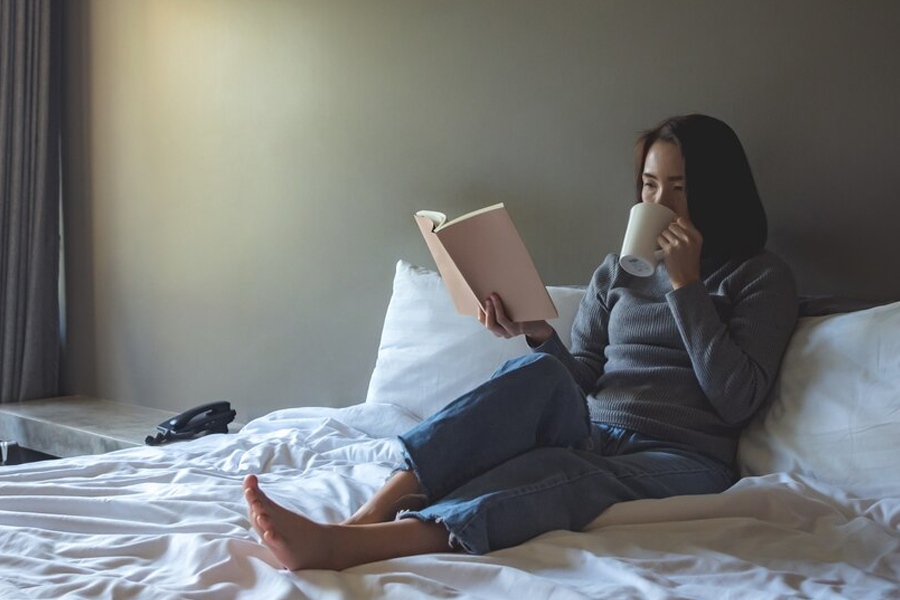
Sleep is a prominent pillar of a healthy lifestyle, acting as a reset button for the body. During sleep, the body undergoes essential detoxification, growth, cleansing, repair, and tissue recovery. The brain, an endlessly curious part of the body, remains active even during sleep, working to balance hormones and recharge the immune system and energy levels. Sleep prepares the brain to learn, remember, and create, linking it to numerous bodily functions. Hence, despite maintaining a clean diet and regular workouts, achieving a healthy body can be challenging if the sleep cycle is disrupted. In fact, sleep deprivation is a leading cause of various health diseases and lifestyle-related conditions, ranging from weight gain and diabetes to hormonal imbalances like PCOD (Polycystic Ovarian Disease) and thyroid issues, heart disease, and even cancer - making quality sleep necessary to maintain overall health. However, a good night's sleep can seem like a dream in the hustle and bustle of a busy schedule. Fortunately, proven tactics can be incorporated into daily life to turn that dream into reality. Shimpli, Head Nutritionist and Lifestyle Expert at Luke Coutinho Holistic Healing Systems shared her inputs with us on how young professionals can get better sleep.
Table of Content:-
Hacks for restful nights
Establish a routine
First and foremost, establishing a regular sleep routine, including weekends, is vital to avoid disrupting sleep patterns. Keeping consistent sleep and wake times and cultivating habits that promote sleep ensure a healthier, more stable sleep cycle.
Reading and journaling helps
For instance, bedtime and morning routines are vital, with the first and last hours of the day considered sacred. Calming activities like journaling help clear the mind and prevent disruptive thoughts during sleep. While reading is also beneficial, avoid stimulating books like thrillers since it may introduce negative thoughts and disrupt a peaceful night's rest.
Also Read: What Is Sleep Hygiene And How Can It Affect Your Mental Health?

Avoid screen time
Another key hack is to avoid screen time for at least an hour before bed, as they can excessively stimulate the brain. Here are some suggestion by Shimpli:
- When screen use is unavoidable, opt for yellow light over bright light and activate the night mode on devices.
- Wearing blue light-blocking glasses after 7 PM can help minimise blue light exposure, thus reducing its impact on circadian rhythms—the body's internal clock that signals when it's time to sleep and wake.
- Circadian rhythms trigger melatonin production in darkness, which helps to fall asleep by acting on specific receptors in the brain. Conversely, light slows melatonin production, making people more alert and awake.
Simple techniques for lasting change
Bedtime breathing exercises
Several breathing techniques, such as box breathing and left nostril breathing, have proven beneficial. While Box breathing reduces stress, Left Nostril Yoga Breathing activates the more active right hemisphere of the brain, enhancing mindfulness, creativity, and relationships. This activation supports the parasympathetic nervous system, fostering emotional well-being.
Also Read: How Often You Should Change Your Mattress For A Healthy Sleep
Perform yoga nidra
Additionally, yoga techniques like Yoga Nidra are particularly effective for calming the parasympathetic nervous system and improving sleep quality, making it beneficial for those facing difficulty with restful sleep. Creating a conducive bedroom environment is equally paramount. For example, lavender essential oil can help soothe tense nerves. Whether kept in the bedroom as a diffuser with essential oils or applied directly to pillows, lavender can notably lead to deeper sleep.
watch this video to know from doctor how to get a good night's sleep:
Dietary options
Chamomile tea and potions with ingredients like poppy seeds (khus khus) and saffron (kesar) are known for their calming properties, aiding relaxation and promoting better sleep health. Natural melatonin strips, typically containing 3 to 5 mg, can also be used occasionally as a support to restore sleep patterns, though it's not a permanent solution. It's important to use these supplements and remedies judiciously, integrating them into a balanced approach to sleep hygiene.
Overall, simple lifestyle adjustments can profoundly affect sleep. Avoiding caffeine after 5 PM is essential to prevent sleep disruptions. Moreover, alcohol, often used by some as a sleep aid, should be avoided as it can have the opposite effect and interfere with good sleep. Furthermore, a brief, 30-40 minute afternoon power nap energises the body without affecting the night's rest.
Therefore, when one feels stressed, overwhelmed, or tempted to stay up late scrolling through the phone, remember that adequate sleep isn't just about following a routine—it's crucial for maintaining overall health and well-being.
Disclaimer: None of the suggestions mentioned above are a replacement for any medical advice given by your doctor. Please make informed decisions before introducing anything new to your lifestyle.
Also watch this video
How we keep this article up to date:
We work with experts and keep a close eye on the latest in health and wellness. Whenever there is a new research or helpful information, we update our articles with accurate and useful advice.
Current Version